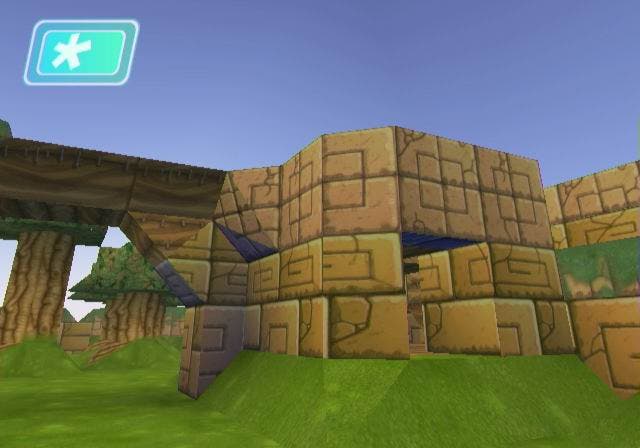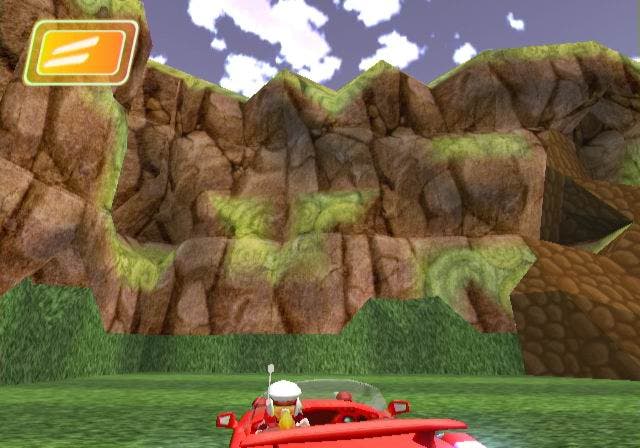GoldenEye designer reveals long-lost sandbox prototype Game Zero
Nought to have been released on GameCube.
GoldenEye designer Martin Hollis has unearthed the first images of his long-cancelled sandbox game prototype, Game Zero.

The unreleased title was once due to launch for GameCube, although its scope and vision were ultimately considered too advanced for both the hardware and general gaming tastes of the time.
Long before Minecraft, Hollis and a small team were laying the first blocks of their own voxel-based destructible world.
The year was 2000, and Hollis had left Rare two years prior. He had quit the celebrated UK company while it was mid-development of GoldenEye follow-up Perfect Dark, wanting instead to travel then settle down to create something different.
After a spell working within Nintendo on the GameCube's hardware, Hollis returned to the UK to found indie startup Zoonami.
It was here that work on Game Zero began and, two years later, also ended.
The only details ever publicly released was Game Zero's project name and a redacted design document, which described it cryptically as "esoteric" and "a joy to play".
And yet many fans still believed Hollis was working on another first-person shooter.
Now, thanks to Hollis and archive site Unseen64, the first images of Game Zero are finally public.

There are shades of Minecraft here and there, something Hollis has spoken about.

"Ancestor isn't quite the right word," he explained. "After all I believe nobody connected to Zach of Zachtronics (Infiniminer) and to Notch of Mojang saw any part of GameZero.
"There's a connection. Minecraft has created its precursors."

"At the time we stopped the project, we had developed a handful of levels with something of a platformer feel. The avatar and vehicles had antigravity movement mainly constrained to the ground, and the player discovered their goals were to navigate, to rescue a few characters from the level, and to collect items partly from the rock.
"The levels were fairly tightly circumscribed in space, much more like Mario 64 than an open world game."

It was, ultimately, a matter of processing power and the prevailing taste for complete, traditional gameplay adventures (Super Mario Sunshine, Metroid Prime, Resident Evil 4) that caused Hollis to abandon the concept.
"If some of your projects don't fail, that's evidence you're not taking chances," Hollis said. "This sort of thing happens in movies and TV all the time, although they don't call it research. For every movie that comes out, there are hundreds of scripts. There's a lot of work goes on behind the scenes that no one ever hears about."


